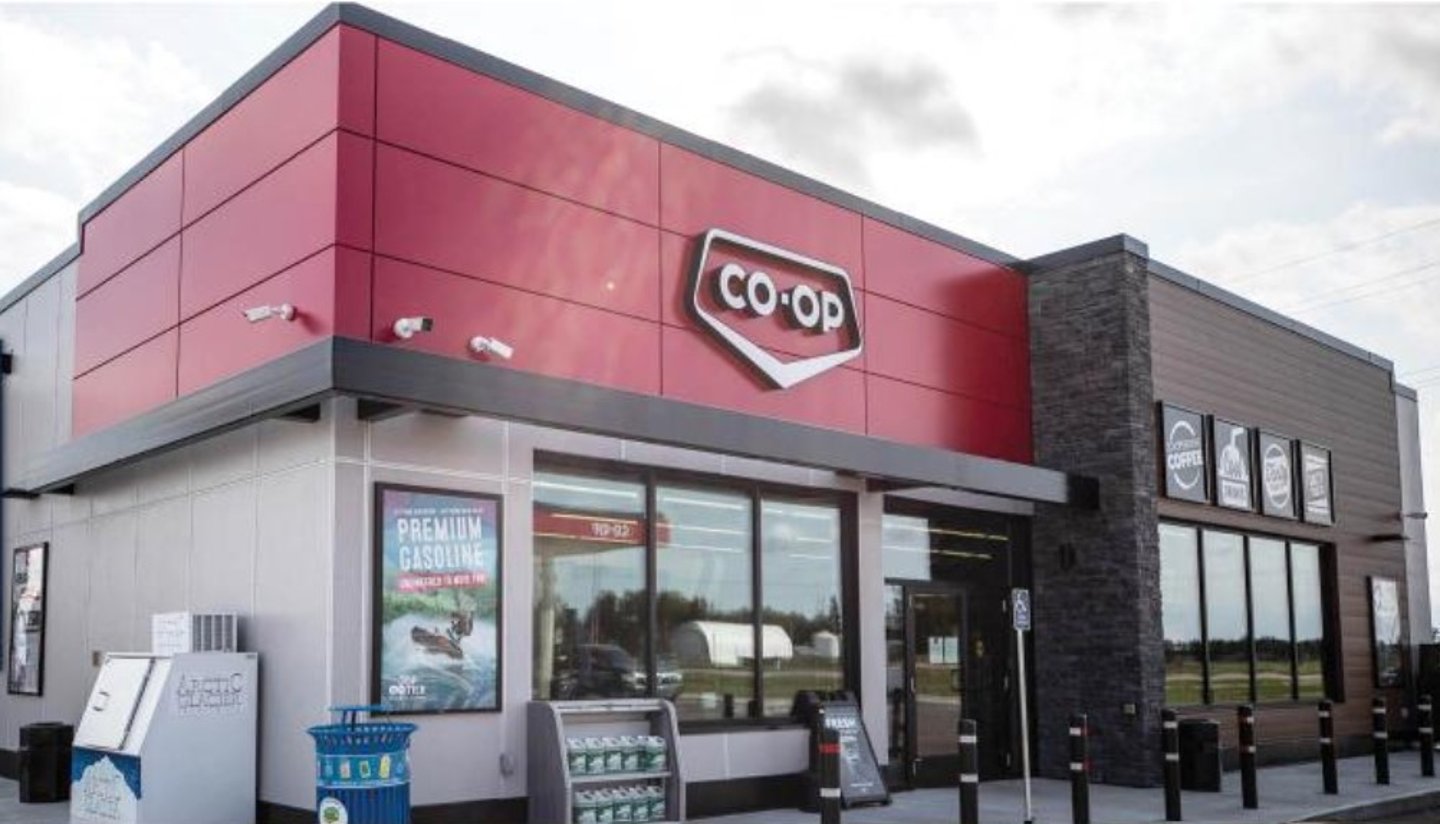Borderland Co-op to build a convenience store and gas bar in Kipling, Saskatchewan
There's something big in the works coming to the corner of Highway 48 and Railway Avenue in Kipling this spring.
Borderland Co-op has announced plans to build a convenience store and gas bar in the community, something that was only a dream a few years ago. “Prior to the amalgamation between Borderland and Hometown, they had been looking at different things in their own development queue,'' explained Jason Schenn, CEO with Borderland Co-op.
Hometown Co-op served the communities of Kipling, Grenfell, Sintaluta and Broadview, merging with Borderland Co-op back in 2021.
“When you amalgamate with a new location, you talk to the individuals, the councils, the prominent businesses, people in general around the community to find out what the needs are and where things stand,” Schenn said. “It didn't take long to figure out that (the gas bar) was a priority that they felt in the community was something that was needed. We do convenience stores very well. It was a good fit for us, so we started working on it immediately. Of course, things take a long time to get off the drawing board and into construction. Construction is actually the fastest part of the process.''
The Kipling project will be the sixth such business in the region Borderland serves, boasting a two-pump, four-lane gas bar with a 3,000-square-foot convenience store. In addition, the new location will offer card-lock and DEF services.
“We're aiming for a seven-day-a-week operation, so it's extended hours,” said Schenn. “It definitely requires a bunch of people to keep it running.”
In fact, Schenn predicts around 20 new jobs will come with the c-store and gas bar, seeing construction starting in May.
“We identified Kipling as a growth area. It's underserved by co-operatives in the neighbourhood, and Hometown couldn't do the things that they wanted to do,” he said. “But we have a bit more ability, background and support people to make some of these things happen at Borderland than any other co-op in the neighbourhood would have. We just think that Kipling's got a lot to offer and I think we can support that in a lot of ways.”
The project has an estimated price-tag in the ballpark of $4.5 million, including petroleum assets, computer equipment and all the associated costs related to the new building.
With the proliferation of charging stations for electric vehicles, it's one area that isn't part of the plans? Yet.
“That possibility always exists,” said Schenn. “It's not on the radar for this particular project right now, but we've been a part of pilot projects on the Number One here with Tesla and with our own Co-op Connect brand. We've definitely seen some uptick when it comes to the Tesla stations and it's kind of interesting with them potentially moving to a model where they can service all vehicles, not necessarily just the Tesla-specific. Right now, all the organizations seem to be focusing on corridors the Number One, the 16, so we're not seeing too much branch off from that right now. But definitely, in the future as we see the market develop, then those would be things that are easy to add."
Kudos to Kipling
Schenn spoke highly of the relationship between Borderland and the Town of Kipling during the planning stages.
“Their council and mayor were very, very good to work with in getting this project to life,'' he said. “They were responsive, they actually seemed interested to have new business in their community, which was great. They were able to work with us on some of the challenges that we had to make things work. One of the biggest things was making sure that we could get our permits in place by the end of the year. They were willing to do what it took to make sure that we could get those things in place so that we could go ahead with the project. We're hoping that this shows a commitment to the community; that we want to be there and on the same note, that they'll support it and create the opportunity for us to be able to try new and different things in the future, too.”
The warm feelings were certainly reciprocated as the Town eagerly welcomes a new business. “We're always very pleased to see businesses decide to make their home in Kipling. We all worked very hard to make sure that this was going to happen,” said Town of Kipling CAO Gail Dakue.”This is a big investment in town.”
Kipling Mayor Pat Jackson was also delighted about the new project coming to town.
“We are excited to have an expansion of the presence of Co-op within our community. The north side of Highway 48 will be enhanced by a new and vibrant business enterprise,” she said. “Our hope is that this will encourage other businesses to develop in the community."
Renovation at Rocanville
With a new 30,000-square-foot food store going up in Moosomin, Borderland Co-op plans to grow not only the main hub of operations, but also bolster services to outlying communities in their region. One example is the Rocanville food store, which was closed for renovations recently for a metamorphosis into Borderland's new operation plan.
“We've also got another project going on in Rocanville this week where we're doing a major conversion and renovation on the interior, with the whole idea being that with the combination of this new (Moosomin) store is going to be able to support all of our food stores,” Schenn explained. “It's going to be about producing for our branch locations so that they can have a wider degree of product and variety right there in their own communities, rather than having
to put them on the road.”
The enhanced regional approach will be akin to bringing the big store feel to smaller centres, ultimately adding many more years to the branch store operations.
“We are trying to put our trucks on the road and get our cube vans moving product to and from the branches a lot more frequently,” Schenn said. “We're never going to be able to have great big stores in small communities, like 1,000 people in a community is not going to be able to sustain a large store. But if we can look at it regionally and say, ‘okay, if we can have one big store and produce all these things that the smaller stores need, maybe we can extend their lives.’ Maybe we can make sure that there's a food presence in these communities longer than it would be if they're trying to operate on their own.”
An in-store bakery or deli might be difficult to replicate in smaller centres, but these fresh products can still be offered via the regional hub.
“You can have that 6,000-square-foot store and have the access to everything that can be out there within a day through Click and Collect, plus access to all your fresh products right there on the ground in the store,” Schenn noted. “We really want to make these smaller sites fresh centres rather than a convenience store.”
Schenn added that stocking Sask-Made products on the shelves will continuea huge bonus for local consumers and producers alike. “That's one of the benefits of what the co-ops can do versus some of the bigger outfits is that we're here, we're connected to our local, we have the path and it's not as hard to get local product into the building as it would be if you're trying to deal with somebody out of Toronto,” he said, putting in a plug for rural living in general. “That's the thing that gets missed out there quite a bit is the quality of life that you can have in a rural community. They're safer, it's a better environment, I just enjoy rural communities as a whole. I've spent my career in rural communities, I haven't really wanted to go to an urban centre.”
Perhaps it is this local focus through a business mindset that continues to hold the key to success for Borderland.
“You can try and do things differently, you don't have to be the corporate entity,” said Schenn. “You can be in touch with your roots and be more effective, I think, with everything that you do. The bigger entities don't think about rural communities. They focus on their big market where you got 200,000 people or more, whereas we're a little bit different that way. Borderland is a collection of rural communities and, yeah, some are bigger and some are smaller in those groups. What our whole thing is about is strength and stability and in rural communities, and that's what we try to work towards every day.
“We have different kinds of problems in rural but I still think that from a community perspective, you see a lot tighter communities in rural and you do in urban,” he concluded.



